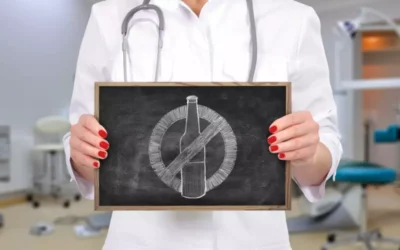Your cart is currently empty!
How to Wean Off Alcohol & Safely Taper Drinking
Content
It is important to only attempt a taper while under a doctor’s care. However, understanding how an alcohol taper works and what the process is like can help you prepare yourself and find the support you need. There are many other potential diseases that long-term alcohol use can cause, and it is important to stop using alcohol heavily if you are.

Tapering helps people stop using alcohol and other substances in small and manageable steps. This can help your body adjust, and it can be easier to manage than quitting cold turkey. Substituting a prescription drug for alcohol should only happen with the help of a medical professional.
Tapering and Alcohol Withdrawal Symptoms
It’s always best to consult a physician on the best strategy, especially if you drink heavily. The main difference between tapering and quitting alcohol cold turkey is how fast you quit. Cold turkey is a common slang term for quitting alcohol (or any substance) all at once. Tapering or weaning means ramping down your alcohol use until you get to zero—or to a more moderate level of drinking that you prefer. That said, tapering off alcohol doesn’t completely eliminate withdrawal symptoms. Alcohol withdrawal is dangerous and it’s important to be careful throughout the process.
Some people choose to taper more quickly by cutting the amounts in half–for example 20, 10 5, 2, 0. But if you start having major withdrawal symptoms like bad shakes or pulse over 100 or high blood pressure you are tapering too fast and should slow it down. Monitoring you pulse https://ecosoberhouse.com/ and blood pressure can be a very good idea while you are tapering especially if you have high blood pressure. If your pulse exceeds 100, your blood pressure goes very high, or you have irregular heart beat then this means that you are tapering too fast and you need more beer.
Pros of Tapering Down Alcohol Intake
There are many resources available for anyone who is ready to stop drinking for good, or who wants to reduce the harm alcohol is causing in their life by cutting down. As you continue to commit to long-term recovery, support group meetings like Alcoholics tapering off alcohol Anonymous (AA) or online support communities might be helpful. Once you have gone through withdrawal, you’ll also need a plan to remain alcohol-free. Start by talking to a healthcare provider about the treatment options for alcohol dependence.
“I feel like I am actually going into the honeymoon phase of my recovery. I feel great and am finally starting to be able to think clearly.” “I’m feeling fantastic. I have lost weight, and my skin looks amazing [I suffered from rashes all over my body and face]. My energy and confidence are back. It is wonderful.” “Sleep is a problem, but if I sleep at all, it is a good night. I think that I have always had the sleep disorder.” After two weeks of total abstinence from alcohol, the most common symptom reported is insomnia, but that could be attributed to other factors, as well. “I am much calmer, anxiety has subsided, stomach better, have an appetite, and sleeping eight hours without waking up at 4 a.m.”
Challenges to Weaning Off Alcohol
A final strategy to assist with an alcohol taper is to get a good network of peer support. It is very important that you estimate your BASELINE ALCOHOL CONSUMPTION in terms of standard drinks in order for you to be able to set up a taper schedule. Just for reference a 12 ounce regular strength (5%) beer is one standard drink. A standard (750 ml) bottle of wine at 12% alcohol contains 5 standard drinks. Some people may also find it easier to just taper off their alcohol use rather than jumping immediately into an abstinence day even if they do not have significant withdrawal symptoms. Alcohol works by increasing the potency of a neutral chemical in the brain called GABA, or gamma-Aminobutyric acid.

People who only drink occasionally probably won’t notice any physical or psychological symptoms. People who have a severe reaction to quitting alcohol should seek emergency treatment. Weaning off alcohol in a safe way can help reduce the severity of some withdrawal symptoms. Orlando Recovery Center says that when you taper your alcohol intake over time, you reduce the likelihood of withdrawal symptoms7. This is because this process gives your brain more time to get used to the changes and damage that alcohol originally created. This is a highly personal decision, which can be made through self-reflection, and with the support of a medical professional and your peers.
Find out more about our admissions process
It can take different people varying amounts of time to taper off alcohol. How long it takes depends on factors like how much you typically drink. A person who drinks more alcohol will probably have a longer taper than a person who drinks less alcohol.
- The first night I barely slept because of auditory hallucinations and the second night I had tunnel vision and felt like a stroke victim.
- This can involve switching to a different alcoholic beverage or replacing alcohol with a prescription drug, but the latter should only be done under the guidance of a medical professional.
- Most people experience the most severe symptoms from about 36–72 hours after stopping drinking.
- If you suddenly quit drinking, your body can struggle to catch up.
- Another clue that can be an indication of an unhealthy relationship with alcohol is if you make “rules” around drinking.
Treatment is the best way to ensure long-term abstinence from alcohol. This is especially true if you are suffering from an alcohol use disorder. Addiction alters the chemical balance in a person’s brain, making it extremely difficult to quit drinking alcohol on one’s own. If you start to experience significant withdrawal symptoms when you stop drinking, a taper can provide a much safer method to detox from alcohol. Tapering can be done by using alcohol itself or various medications; however, can only be done safely under the supervision of a physician. Whichever method you choose, what is most important is to commit to your alcohol tapering schedule, so you can be sure that you have avoided the symptoms of alcohol withdrawal as much as possible.
Leave a Reply